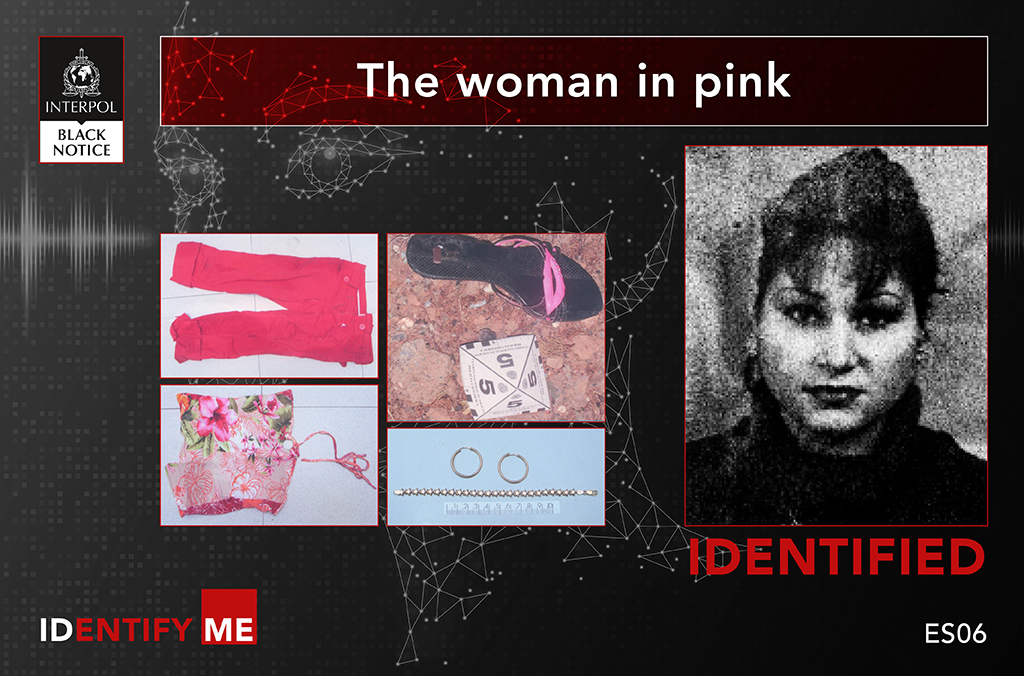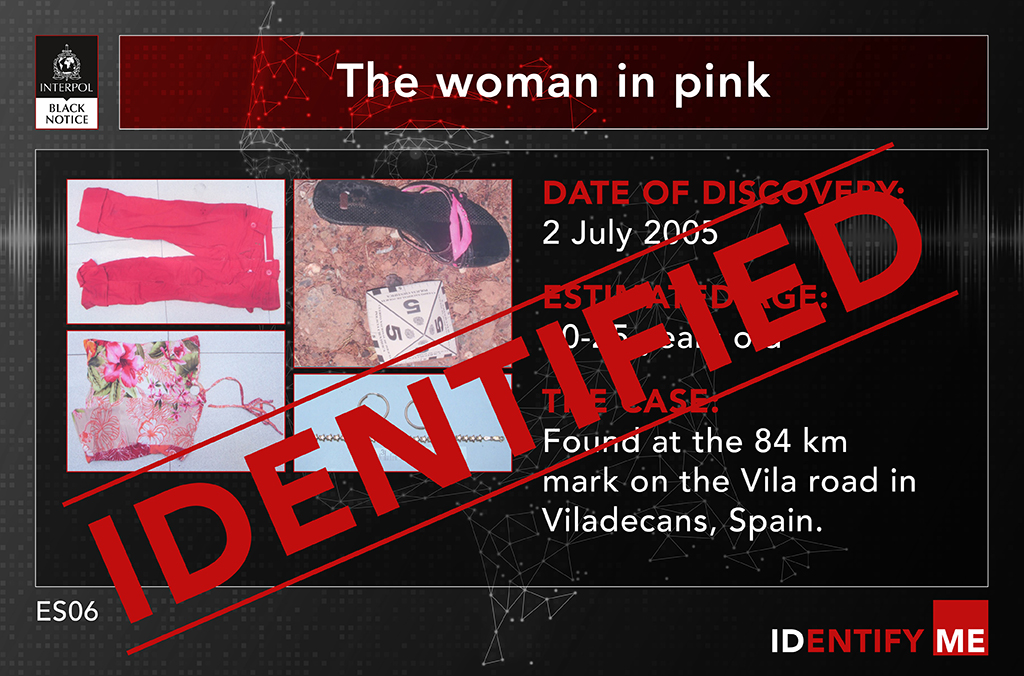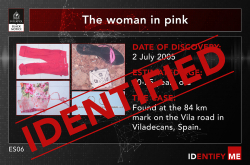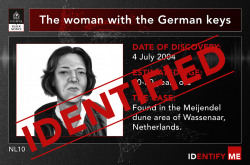LYON, France – A woman whose body was found in Spain two decades ago has been identified as Russian citizen Liudmila Zavada.
The cold case is part of Identify Me, an international campaign coordinated by INTERPOL in collaboration with six European countries: Belgium, France, Germany, Italy, the Netherlands, and Spain. The initiative seeks to identify women who were found dead across Europe in recent decades.
Since its launch in 2023, the Identify Me campaign has included 47 cases, all involving women who were murdered or who died under suspicious or unexplained circumstances.
One of these cases, known as ‘The woman in pink’, dated back to 3 July 2005, when a woman's body was found by a road in Viladecans, a town in the province of Barcelona. She was dressed in a pink floral top, pink trousers, and pink shoes, and had been dead for less than 24 hours.
Local police deemed the cause of death suspicious, as evidence suggested the body had been moved in the 12 hours preceding its discovery. However, despite thorough investigations, her identity remained a mystery for two decades.
With no new leads, authorities in Spain submitted the case to INTERPOL’s Identify Me in 2024. The campaign involved publishing details of the cases online and sharing information with the media – including, where possible, images of facial reconstructions, personal belongings, or tattoos – in the hope that someone from the public might recognize something.
As part of the initiative, INTERPOL also shared the biometric records of the cases with all its 196 member countries, with renewed calls for law enforcement to run the data through their national databases.
A breakthrough came in 2025 when police in Türkiye ran the fingerprints associated with ‘The woman in pink’ through a national biometric database, resulting in a match with Russian national Liudmila Zavada, aged 31 at the time of her death. The match was subsequently confirmed through kinship DNA analysis using the DNA of one of Liudmila Zavada’s close relatives.
INTERPOL Secretary General Valdecy Urquiza said:
“After 20 years, an unknown woman has been given back her name. Each successful identification brings fresh hope to the families and friends of missing persons and creates new leads for investigators.
“Congratulations to the Spanish, Turkish and Russian authorities for working together on this case. Through global cooperation and by connecting police around the world, we’re helping more families find the answers they’ve been waiting for.”
Successful identifications
This case is the third successful identification linked to INTERPOL’s Identify Me appeal. The launch of the campaign in 2023 led to the identification of Rita Roberts, a British woman who was found murdered in Antwerp in 1992. The family of Rita Roberts contacted the appeal hotline after they recognized their relative’s tattoo from news coverage.
In 2025 a second woman, 33-year-old Ainoha Izaga Ibieta Lima, was identified when Paraguayan authorities matched fingerprints uploaded by Spain to INTERPOL’s Black Notice against their own national databases, as part of the Identify Me initiative.
Identify Me marks the first time INTERPOL has publicly shared extracts from Black Notices to help identify the deceased. These Notices are used to disseminate information globally on unidentified human remains, with the aim of determining the circumstances surrounding a death and identifying the individual. The shared information may include details such as the location of discovery, biometric data (DNA, fingerprints, facial images), dental records, physical descriptions of the body or clothing, and any other relevant details that can help identify the deceased.
Since 2021, INTERPOL has been providing investigators with a new global tool, the I-Familia database. It has already solved cases by helping identify unknown bodies through international family DNA kinship matching. This process relies on the voluntary DNA contributions made by relatives of the missing, which are used solely for the purpose of identifying missing persons and are not matched against criminal databases. Such cases underline the crucial role played by the public and partners in supporting these efforts.
The public appeal continues: 44 remaining cases
The Identify Me campaign continues, still seeking answers on 44 unresolved cases of unidentified women. We urge anyone who may have information, particularly those who remember a missing friend or family member, to visit our dedicated website at Identify Me and contact both INTERPOL and the relevant national authorities.
If you believe one of the deceased women may be your missing loved one, you can also reach out to your national police, who can then work with INTERPOL to facilitate international DNA comparisons and potentially bring answers to your family.








